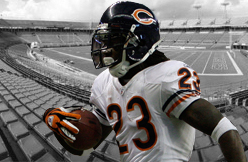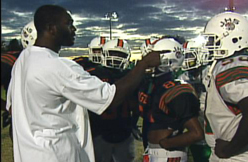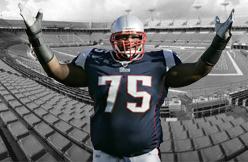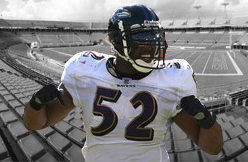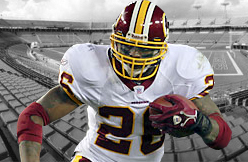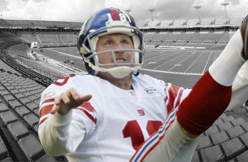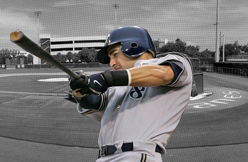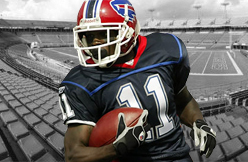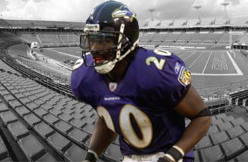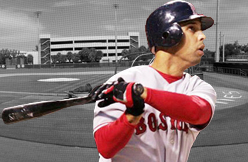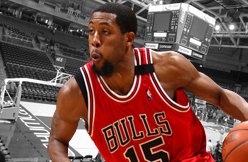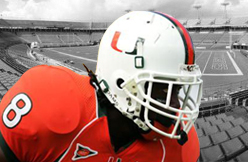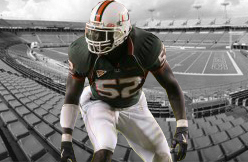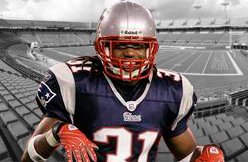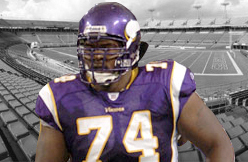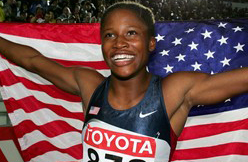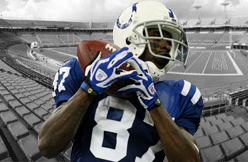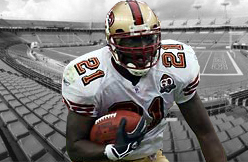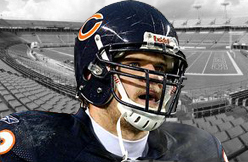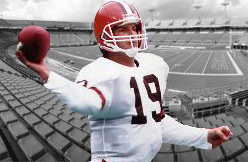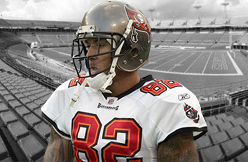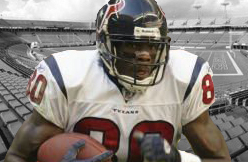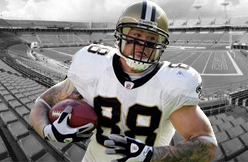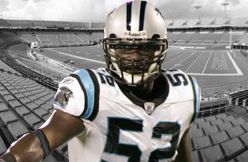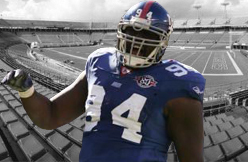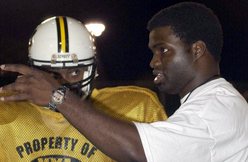
proCanes.com is continuing our “Tracking proCanes” feature with someone who is not a former University of Miami Athlete, but nonetheless an alum of the University of Miami and is heavily involved in spreading the spirit of the University of Miami Athletic program, specifically the football program, through his new film “The U” which will air on ESPN on December 12th at 9pm after the Heisman Trophy Presentation.
Billy Corben was born in Florida and graduated from the University of Miami where he majored in political science, screenwriting and theater. His feature documentary directorial debut, “Raw Deal: A Question of Consent,” premiered at the Sundance Film Festival in 2001, making him one of the youngest directors in Sundance history. Examining the alleged rape of an exotic dancer at a fraternity house at the University of Florida, the film utilized extensive clips from videotape footage of the alleged assault. Considered by critics to be “one of the most controversial films of the modern day” and “one of the most compelling pieces of non-fiction ever produced,” (Film Threat Magazine), “Raw Deal” has been seen all over the world. Following that success, Corben and producing partner Alfred Spellman founded
rakontur, a Miami Beach-based content creation company, and took on another Florida true-crime story, this one closer to home. The New York Times called “Cocaine Cowboys” “a hypervent-ilating account of the blood-drenched Miami drug culture in the 1970s and 1980s.”
Corben is now putting the finishing touches on the film, “The U” which is described here: Throughout the 1980s, Miami, Florida, was at the center of a racial and cultural shift taking place throughout the country. Overwhelmed by riots and tensions, Miami was a city in flux, and the University of Miami football team served as a microcosm for this evolution. The image of the predominantly white university was forever changed when coach Howard Schnellenberger scoured some of the toughest ghettos in Florida to recruit mostly black players for his team. With a newly branded swagger, inspired and fueled by the quickly growing local Miami hip hop culture, these Hurricanes took on larger-than-life personalities and won four national titles between 1983 and 1991. Filmmaker Billy Corben, a Miami native and University of Miami alum, will tell the story of how these “Bad Boys” of football changed the attitude of the game they played, and how this serene campus was transformed into “The U.”
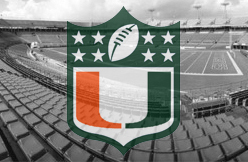
Billy Corben: Everyone in our company, Rakontur, are Miami natives basically. So one of the mandates of our company is to not only tell great stories, but tell great Miami stories. The Hurricanes of the 80’s in particular is one of those great Miami stories. It was one of those stories on our list for a long a time to tell and we had an opportunity to pitch it to ESPN and we took that opportunity. The inspiration was really growing up in Miami and seeing the dramatic impact, not only in sports, but in our community in terms of pop culture, in terms of the merging of sports and entertainment, this profound effect the Miami Hurricanes had being the team of the 80’s.
pC: What's the official name of the film?
BC: The temporary working title of the movie was “Hurricane Season,” and now it is “The U” and just “The U.” There have been some internal discussions about adding a subheading to it, but right now it is just called “The U”
pC: How did you end up partnering with ESPN?
BC: Like I said, this story of the Hurricanes of the 80’s was on our short list, of great Miami stories that we wanted to tell and ESPN Films was doing some really great work and we called them up and Connor Schell, he happened to have been from Miami and gone to high school in Miami and he knew all about this story of course, not to mention he was a big Cocaine Cowboys fan which was really exciting and fortuitous for us. We went up to New York and met with everybody at ESPN films and eventually went to the Bristol CT headquarters and met all the people we have been working very close with on this movie and they loved the idea. They loved our take on it. They loved our angle on it. To their credit, they loved that we were also alumni and graduates of the University [of Miami] working on it. They’ve also given us a lot of creative freedom and autonomy on this project to tell it in our voice. It’s definitely ESPN Films presents, there’s no doubt about that, but it is our voice, it is Rakontur’s voice telling the story just like all the 30 for 30’s. These are all personal stories. All the filmmakers have a personal relationship with these stories and it’s no different here with Rakontur, me and the Hurricanes. ESPN is producing over the course of just a couple of short years, 30 movies with 30 filmmakers. I mean movie studios these days don’t even do that. So they are working their asses off, to help all of us craft these individual unique visions, 30 of them. They’ve just been incredibly cooperative and helpful and supportive to work with. I really appreciate and I can’t imagine having made this movie with anyone else and for anyone else other than ESPN. We approached them, we pitched the story, they loved it and have been behind us ever since.

BC: My grandfather had season tickets in the 40’s in the Orange Bowl and as long as I have been alive, my dad has had season tickets to first the Orange Bowl and now of course Joe Robbie, Pro Player, Dolphin, Land Shark Stadium, J-Lo Stadium whatever the hell it’s called. I think it’s Buffet Stadium, that would be fun at least or we should just call it Margaritaville. Why don’t we just call it Margaritaville and drop stadium from it? My dad has had season tickets as long as I have been alive and I grew up going to ‘Canes games. Whenever I could go, I would. I’m talking about five years old at the Orange Bowl. Some scary stuff. The Orange Bowl was quite an intimidating environment for a little kid. You could actually feel the stands move and shake as the crowd built up and roared and back in the 80’s, the crowd would often get built up and roar. I remember the feeling of that stadium. It felt like that stadium was going to come apart as everybody was stomping and cheering and screaming. I remember even being that young and realizing what an absolute sensation this team was, and these players were. I was conscious, even then, of a good show, the spectacle of a great story. You could just look down at the field, at that stage and know you were witnessing the greatest show on earth. I’ve never seen football or entertainment like that since. It’s a shame. It’s a shame that football can’t be that fun and that passionate and that exciting and that enthusiastic. Later, you know, we have the Miami rules, the excessive celebrations penalties which are just ludicrous and literally take the joy and the thrill out of a game being played by 18, 19, 20-year old kids and you would hope they would be able to enjoy it now as much as they enjoyed it then and as much as the crowd enjoyed them enjoying it.
pC: What's your favorite memory of the Hurricanes when growing up?
BC: It’s tough because I was so young going to some of these early games. In high school, when I have more distinct memories I didn’t go to as many games as I would’ve liked to, in fact I didn’t go to any of the Championship games at the Orange Bowl, unfortunately. My dad had friends to take with those tickets and he wasn’t going to let me have one of those tickets or maybe he sold them, who knows! Those were expensive tickets, even in those days, so who knows.
pC: How different was it doing a film like this as opposed to Cocaine Cowboys?
BC: Well, no joke, they’re actually very very similar. One is about Miami and cocaine and one is about Miami and college football, so see, they’re very much alike! [Laughter] In fact, Cocaine Cowboys fans will find that structurally there are a lot of similarities. Cocaine Cowboys opens with the city of Miami, as a sleepy little town. “The U” opens with the University of Miami as this institution of higher learning with a not so great football team going through six coaches in seven seasons, just really on the verge of extinction. The University of Miami had already cut basketball and football was the obvious next step for the trustees to cut and they managed to get one more lease on life, higher one more head coach, to see if they could make some thing happen and they happen to higher Howard Schnellenberger, which was of course the big shift in the fate of this program. So, the movies [Cocaine Cowboys, The U] kind of begin similarly in that regard with the old archival footage of the campus, which was a very lily-white campus in Coral Gables. We have this old classic tourism film about Coral Gables, just like at the beginning of Cocaine Cowboys we have those tourism films of Miami and Miami Beach and you’re about to see the Cocaine Cowboys come in and turn the city upside down and turn it into what it is today and the same thing happens in “The U.” In comes this remarkable football team, these groups of men, these different teams that made up the Hurricanes in that decade and they’re about to come in turn the campus upside down, college football upside down and eventually professional football on its head. So, really, they’re actually very similar films and not to mention there’s a nostalgia today for both the Cocaine Cowboys era in Miami where anything goes, it was the wild west, there was a lot of money, a lot of parties a lot of fun, even though here was murder and mayhem, you still have that nostalgia. Same thing with the Canes, there’s an even greater nostalgia for the ‘Canes of the 80’s and the exuberance and enthusiasm and style that they brought to the game despite the fact that there was some negativity some negative press some bad news from the program and that time period. There is still that very strong passion and nostalgia for the ‘Canes of the 80’s just like the Miami of the 80’s of Cocaine Cowboys.

BC: Man, that’s tough. That is tough because we did something like 40 interviews of head coaches, assistant coaches, players, from quarterbacks, wide receivers to some of the greatest defensive players to ever play the game of college or professional football. This is a real tough one. Finally we just got the Michael Irvin interview so there is a certain sweet smell of success there and he was as good, as we knew he was going to be in his interview. Jimmy Johnson was sensational. Lamar Thomas was hilarious. Bernie Kosar was a sweetheart and offered a lot of great insights that we wouldn’t have otherwise gotten had we not interviewed him. Alonzo Highsmith was great. Mel Bratton was great. Jeremy Shockey, you had no idea what that guy was going to say next, he was a classic interview. That’s a real tough one. Which one was my favorite? Too hard to say, too hard to say.
pC: How long will the feature be for ESPN?
BC: We’re going to get a two-hour broadcast block so without commercials the total running time of the movie is going to be about 100 minutes, which is barely enough time to tell the story of the four national championships that we’re telling. 1983, 1987, 1989, 1991 seasons. It’s tight squeeze, it’s tight squeeze.
pC: How difficult was it to get the player interviews, were former players receptive to the idea?
BC: Good question. Very little trouble getting the interviews from the players. Except for Michael Irvin, which was a bit more of an uphill battle, but ultimately he agreed to talk to us and was terrific. Like Michael Irvin said and a lot of these guys said, the years playing for the Hurricanes were some of, if not the best years of their lives. To call someone up and say “hey will you come and talk about some of the best years of your lives” doesn’t require a lot of arm twisting. The biggest problem was the University of Miami who was not supportive in the least of the project, which was funny because I did the math, of our full-time employees at Rakontur and the independent contractors that worked on “The U” and we have combined, no less than 20 years, 20 years, at the University of Miami, that we spent as students. You do the math, that’s at least 2 million dollars in tuition, at least, for all of us and all the years and semesters we spent there. Not to mention we still get multiple emails a day asking us to donate money to the University and yet I approached the University of Miami as an alumni, as a graduate. I said “hey can we get access to your archives, your photos, your films, we’d like to interview Randy Shannon, we’d like to interview Paul Dee” and they told us to go screw ourselves. Here we are, School of Communication graduates made good, telling the definitive story of the University of Miami Hurricanes in this era for ESPN, one of the biggest, if not the biggest cable networks in the universe, basically producing a two-hour infomercial for the University of Miami. They should put Rakontur’s name on a building when this is all done. I don’t know how they measure in cash, the contribution of a two-hour primetime infomercial for the University of Miami and the extraordinary history of the football program. Nine p.m. after the Heisman Trophy ceremony on ESPN. I was really disappointed at the level of professionalism or lack thereof, and lack of support that we got from the Athletic Department and the University administration. They should really be ashamed of themselves of how they treat their alumni. It’s not like we went to them for money, we didn’t need money, ESPN was financing the thing. We went to them for support. Let us interview some people who are currently employed by you. Let us get some access to some of your archival materials and like I said, they sent us packing. Considering the quality of education that I got at the University of Miami for the money I spent, I like to say it’s a TJ Maxx education at Neiman Marcus prices. The least they could do was be professional and be courteous to alumni.
I resigned my position on the Citizens Board, a very prestigious Board of both alumni and influential people in the community who are actively involved in fundraising efforts for every program of the University. I resigned as a result of the disrespect that the University showed us. What was interesting about it, was that the University not only blocked our access the small handful of people, Randy Shannon and Paul Dee mostly, who are currently employed by them who we needed the University’s permission in order to get access to them for an interview. Not only did they block that, but they attempted be obstructionists about it. They were telling other people such as Coach [Dennis] Erickson, not to give us an interview. It’s one thing to say, no we can’t as a University endorse, though we didn’t ask for their endorsement, participate in this, it’s another thing for them to go out and try to obstruct our ability and access to people that are no longer employed by the University. So we went out to Arizona State to interview Coach Erickson and he said ‘you know, I called the University to follow-up on this request and to see about the project and they told me not to do it.’ I was like “you’re kidding?” It’s one thing for the University to say we’re not participating and do whatever you want but to tell someone not to participate?
Fortunately for us, everybody pretty much, especially the players, didn’t care what the University had to say, certainly were not going to be kept from telling their story. That’s literally what this is; this is the player’s stories. If you’ve seen any of our Rakontur documentaries Cocaine Cowboys, Cocaine Cowboys Two, Raw Deal, A Question of Consent there’s no narrator there’s no real point of view of the filmmakers forced upon the movie. It’s not a Michael Moore movie. It’s not a big expose or anything. This is their opportunity to tell their story in the first person. I always say Rakontur is first person productions. It’s not about “they and he” it’s about “I” and “we” and that’s what we got here fortunately, because the players weren’t going to listen [to the University]. The players didn’t listen to the administration back when Tad Foote was trying to implement a code of conduct and dress codes, so they’re sure not going to listen to the administration now telling them not to participate and thank goodness for them. These are men of character and men who are great characters and fortunately I think virtually everyone we approached, now that Michael Irvin gave us the interview, pretty much everyone we approached said ‘yes’ except for a very small handful of people employed by the University.

BC: Holy crap. Jimmy Johnson has life perfected, perfected. He makes Jimmy Buffet look like a stockbroker. This guy is doing retirement right. It’s amazing. He’s got this beautiful house, right on the ocean, and he very graciously invited us down there to interview him. We had a real small window of opportunity because, as he put it, he could ‘hear those fish biting out there’ and literally the background of the shot while we’re interviewing him is his fishing biddies loading up his fishing boat that’s in the background of the shot. They’re putting the bait on, the light beers, because Jimmy’s on light beers now, he’s on a diet, they’re loading up the Subway sandwiches, the fishing rods like right in the background of the shot [laughter]. They’re like ‘sorry guy we’re just running through!’ and Jimmy was like let’s do this, let’s do this. So we ran the interview and literally the last thing we did was just an intro we recorded and he said ‘alright guys, thank you, that’s it!’ He leapt down off the chair, ran into the background of the shot, jumped on his fishing boat and they just took off into the Atlantic [Ocean] to go fishing. It was awesome. There we all were, me and my crew just standing there with all of our equipment set up in Jimmy Johnson’s back yard thinking this is the coolest job ever. I got him and everybody else to sign this football. I mean everybody that we interviewed signed this football and it’s amazing. It’s like 40 signatures from the greatest players, coaches assistant coaches and one of the greatest athletic directors, Sam Jankovich, who signed this ball. It’s an amazing artifact that we have from making this movie.
pC: I assume you have a lot of footage that won't be shown on the ESPN feature, what will you do with that?
BC: That’s a great question too, because we always have a glut of extra footage. We’ll probably have some proCanes.com exclusive deleted scene that you can embed on the site at some point before or after the movie premiers. We’re definitely putting together quite a DVD package. To me actually, as a movie buff and DVD collector, my number one, top bonus feature that I look for in a DVD, if I am going to buy it or rented it or whatever, is deleted scenes. To that end, all of our DVDs, Cocaine Cowboys One especially, Raw Deal, A Question of Consent, on those two DVDs we put over 30 minutes of deleted scenes and deleted footage on there. That to me is a real serious value. That’s another 30 minutes of movie that you didn’t get and not to mention it’s a real insight into the film making process because you have to make a lot of tough decisions when you’re editing a movie especially a movie that has to be 100 minutes for television that’s got to tell the story of the Canes from the late 70’s into the early 90’s. I mean, obviously, as you said in your question, a lot of footage is going to wind up on proverbial cutting room floor. Fortunately there is no cutting room floor, it’s all digital non-linear editing, so we have all of those scenes, deleted lines, deleted scenes, deleted sequences, we have them all in a lock box in a folder in Final Cut Pro where we can go back to and access those for additional content. It’s definitely something whether it’s on proCanes.com, the ESPN website, certainly on the DVD you’re going to get a whole lot more of “The U” after the movie premiers.
pC: What phase are you in terms of the feature? Done? Editing?
BC: Man, oh man. This is an epic. ESPN is doing these 30 for 30’s which is 30 different documentaries by 30 different filmmakers about some extraordinary sports story of the last 30 years to celebrate ESPN’s 30th anniversary. They first came on in the fall of 1979, so right now they’re celebrating the 30th anniversary. When ESPN picked us up, we were not a part of the 30 for 30 series and then they announced the 30 for 30 series and told us that we were going to be one of the only two-hour 30 for 30s because the rest of them were all one hour. So, really all of the 30 for 30s are pretty much about one player or one game or in the case Barry Levinson, one band, the Baltimore Marching Band and this movie is an epic, it’s an epic. It’s one of the few, if not only, 30 for 30s that is about four national championships in under 10 years of a single team. This is an epic!

To that end, it has been an ongoing editing process not to mention that we just got a Michael Irvin on October 29th. We had locked pictures, so we thought several weeks ago, Two weeks ago we did live recording sessions that we put live on U-Stream so you could hear live a 14-piece orchestra all week long recording the music. Halloween weekend we spent editing the Michael Irvin sound bites into the movie which of course will make the movie longer which means we will have to cut other things out which means the shape and timing of the movie is going to change. We are still very much editing the movie but at the same time we are also recording the score, the original music, we are actually recording an original song, actually this is breaking news, I don’t think anybody knows about this. We are recording an original song, main title song, theme song with Luther Campbell last week which was pretty incredible. It’s an old school Miami based two live crew sounding styled song, which Luther is going to do the lead vocals on. We’re doing the graphics work, designing a beautiful lower thirds effect, I’m not going to give away the surprise but it’s a pretty bad ass concept very consistent with the spirit of the U. We’ve got some beautiful graphics work and animation that’s going on right now. So we’re really doing everything at the same time right now to try and finish this movie. ESPN said the movie is premiering December 12th at 9pm, I told them you will not have it a minute later than 8:45 pm on December 12th. At this rate that might be about when we deliver [laughter]. The movie is looking great, it’s sounding great. We’re making a lot of last minute changes. I asked ESPN at the end of the second hour of the movie if they could have a SportsCenter break, this just in ‘this just in, SportsCenter, “The U” is going into overtime” so we can make the movie a little bit longer.
pC: What's one thing you learned from making the film that you didn't already know about the program?
BC: Well I’m tempted to just say you have to watch the movie to find that out, but I’ll give you one. Jimmy Johnson’s Thursday night meetings, which I didn’t know about, but hearing about it from Coach Johnson, from the players, it took on a new life and a new depth and new meaning to what was otherwise sort of anecdotal stories about these mythical Thursday night meetings. Art Kehoe even told us, that he wished that he had gone to one, but never actually made it to one of the Thursday night meetings. Commentary from the players and coaches of things like that, that are really really compelling. Everything else that I learned, that I didn’t know about the team or the program I’m going to let you watch the movie and find out for yourselves something that maybe you didn’t know about the program.
pC: How would you say this film is different from other sports documentaries?
BC: First of all I don’t really look at it as a sports documentary. I look at it as a sports culture documentary. I look at it as a Miami story. I look at as a lot of things, but not just a sports documentary. I think it talks a lot about the atmosphere in Miami in the 1980’s, the racial tensions in the community, the fact that we had not one, not two, but three incidents where police officers murdered young black men that led to multiple race riots over the course of the decade, starting 1980 with the McDuffie murder and riots going all the way to 1989 with the Lozano shooting and subsequent civil unrest and this was the environment and the neighborhoods where a lot of the great players in South Florida were recruited by Howard Schnellenberger and Jimmy Johnson and it gave these players a perspective and a fire, a passion for the game. As Mel Bratton put it ‘football was the way out of the hood.’ They played with that passion and that fire and that swagger that nobody had ever seen anything like it before. Not on TV, anyway. Hip Hop culture and street swagger and Miami street swagger is now pretty much mainstream, but back in the 1980’s that was not what most of America knew. I think about pop culture references to black America in the 1980 and we have the Cosby Show and as far as music goes you had Run DMC, which was pretty tame Rap music. Luther Campbell was just coming on the scene, gangster rap was just coming on to the scene, it was very controversial and not ready for primetime. But here you had these players also not ready for primetime but right there in living color on your TV set every Saturday playing football and displays that you had just never seen before. That’s what the movie is about to me. Yes, it’s a great team, yes it’s certainly about four National Championships in a span of less than a decade, but it’s about these men and these personalities and the character and the characters that made up this team.
pC: Some former players I have spoken to have expressed concern over what sort of light the film will portray the “U.” What would you say the film is trying to portray?
BC: I’ll tell you this. I’ll tell you this. ‘Canes lovers who watch the movie are going to walk away from the movie still loving the team and maybe loving them even more. ‘Canes haters are going to walk away probably still hating the ‘Canes [laughter] for the same reasons they hated them before, but I think with a new level of appreciation or maybe even respect for how this team changed; first pop culture, then college football, then professional football maybe not in that order and really professional sports in general. I think this is a real opportunity for the team, the players, the coaches to tell their story from their perspective and respond, let’s say, to a lot of the criticism and the negativity that’s been around. There’s no doubt that we’re pretty objective in this film, we do present the other side of the story. But here you have first hand the Canes responding directly to that criticism and that controversy. Whether or not that makes everybody happy, whether or not that generates more controversy, we’ll have to see when the movie premiers. I don’t think anybody will throw a bottle at my head like poor Dan Le Batard [laughter]. He wrote something that pissed of a fan, I really hope I will not have enter the witness protection program after we premier this movie.

BC: Coach Coker unfortunately is not going to be in the final cut of the movie, because we do not go all the way to 2001. Originally when we had conceived the movie we were possibly planning on going to ’01. We’re not now. This is just going to be the team of the 80’s, the Canes that were recruited primarily by Schnellenberger and Jimmy Johnson and that continued to play in the early 90’s and won in 89 and 91 with Coach Erickson. Right up to the Pell Grant scandal and the sanctions is kind of where we end our tale. In talking about Howard Schnellenberger, Jimmy Johnson, and Dennis Erickson, you could even tell today, interviewing them and watching their interviews in the movie exactly the kinds of personalities and exactly the kinds of coaches that they were and that the players and assistant coaches talk about. Their personalities are right there perfectly on display.
With Schnellenberger you get the stature of this man and the rich history of football that he brings to the table. You understand the reverence that these players had for him and you could practically still smell the cherry flavored tobacco smoke coming down the hall before he walks into a room and he’s a real presence to this day. That growl low voice that he has really contributes to the whole persona which continues to this day and you really understand why the players respected him, paid attention to him and did not want to disappoint him. They wanted to go out and win for him.
Jimmy Johnson, same thing. I mean you see Jimmy Johnson on TV every week on Fox and he’s just got that energy, and that enthusiasm, that passion, that fire that these players came along with. I think Don Bailey Junior told us in his interview, Jimmy Johnson had a chip on his shoulder from his time at Oklahoma and everything and he came in like a lot of these players did, with that chip on his shoulder. And Jimmy talked to us about how he could relate to a lot of these players because he was the first person in his family that went to college. A great line from the movie from Dan Le Batard, which I was going to tell you, but I think I am going to save it for the movie, it’s a great line about the relationship and connection Jimmy Johnson had with his players, motivating these players the right away you can see why Jimmy Johnson became, as Michael Irvin said: “A lot of the guys on the team, myself included, didn’t have fathers, grew up without fathers and Jimmy Johnson became all of our fathers.’ You can see the warmth. I mean watching the archival footage, Jimmy and the team in practice and on the sidelines in games, in the locker room, there’s always an arm around a shoulder, an embrace after a touchdown, I mean there was a bond and a level of warmth and not just respect but you know a familial bond and a love for each other and the game and that is so apparent in talking to Jimmy Johnson today.
Robert Bailey said in his interview ‘Coach Erickson was like when a substitute teacher comes into class.’ Everybody is just going mess around as much as possible and as much as they can get away with. Erickson you can see, he said in his interview ‘that the players taught him more about football, their lives, and their culture than he probably taught them.’ At the same time you can see that this is a guy knew enough to stay out of their way and to devise tactics to channel their energy off the field onto the field and into winning games on the field. You can see that he is cool and quiet but at the same time you can see he is calculating how to get these players to do what they need to do to win games. There’s no doubt that he did it, winning two national championships.
pC: Did you talk to some of the Hurricane QB greats? Talk about them and their personalities.
BC: This is not a “Quarterback U” documentary but you can’t make a documentary about the Hurricanes in the ‘80’s and not talk to some of the great quarterbacks. We talked to two in particular, both of who won National Championships. We talked to Bernie Kosar and Steve Walsh. Both were terrific and not unlike the coaches, even to this day could understand the personalities that made them leaders on the field. Bernie Kosar was about as nice and gracious a man as I have ever met. He actually did the interview less than a week before the news broke about his financial difficulties and it really broke my heart to read about that in the Miami Herald. He really could not have been a nicer guy, more gracious guy and less than a week before that news broke, did not let on at any point before, after or during the interview that he was dealing with the kind of problems he was clearly dealing with at that time and we really appreciate his time, which he gave us quite a lot that day. His insight into Howard Schnellenberger as a coach, some of his teammates and what went into being a freshman quarterback coming out of that quarterback preseason contest of the ’83 season that Schnellenberger had him and Vinny Testaverde endure to see who was going to get that starting position. It’s actually a great deleted scene from the movie that hopefully will see the light of day somewhere online or DVD about that quarterback competition and how Vinny Testaverde was clearly, to coach Schnellenberger and to Bernie Kosar, clearly the better athlete pound for pound, pass for pass and how Schnellenberger just had a feeling. They go into that season and lose that first game against the University of Florida and perhaps this looks like Schnellenberger‘s folly and Schnellenberger famously said that he went back and looked at the film from the game and determined that play by play statistically the Hurricanes beat the [Florida] Gators, just not in the final score and he was able to, I think, instill that enthusiasm and that inspiration in Bernie and in the players, that you were clearly the better team there, now we have to make that reflect on the scoreboard and that is what they did for the rest of the season with this freshman quarterback who ended up winning all of their [remaining] games and go to the Orange Bowl against Nebraska for the National Championship that year.

BC: I was on the University of Miami Citizen’s Board, a position that I resigned from, as a result of a lack of cooperation the University gave us on this project and I was on the Board when Paul Dee came and made a presentation at a luncheon about the options that the University was facing with regard to which stadium to contract with, to have the Hurricanes games and it broke my heart to see the Orange bowl torn down, in fact it’s something, that even though this movie is not about the Orange Bowl and the destruction of the Orange Bowl plays a very important visual element in our movie at the end of it. It felt right especially because of the rich history of the stadium. At the same time the presentation that we saw, from a business standpoint, was very clear that this move was inevitable, there was nothing that was going to stop it from happening. From a strictly business perspective it was a sound decision, and as I said inevitable, a foregone conclusion that they were going to move the team. What you can’t really account for in a business decision like that, the x-factor, we’ll call it the “U-factor,” the “OB-factor.” That is that element of whether it is motivational, spiritual, psychological, or what have you, that the Orange Bowl brings to the table in terms of local excitement, community excitement about the team and about the games. It was a creaky piece of crap, that stadium, but it had not only a lot of history, it felt a lot more like a college stadium, certainly than already dated corporate coldness of what is now Land Shark Stadium. So, there’s definitely something to that.
I think the distance is not a major factor, students can still take buses and everything up there, but I think there is definitely, I mean you can see when the team is number 8, number 9 [in the polls], attendance has been pathetic this year at Land Shark, there’s no doubt about it. I think there has been more enthusiastic tailgating going on outside of the stadium that fan support in the stadium. So whether or not that’s just a testament to the dissatisfaction the fans feel with the stadium change or the fact that there’s been some beautiful weather lately so there’s a lot of competition for people’s time and attention. People get out of bed and it’s a beautiful day and they’re like ‘huh, beach or Land Shark Stadium?’ The fair-weather fans, as they call them. Ultimately, like I said, it was a sound business decisions and an inevitable one at that, but I think it’s going to take a couple of year convince the community and the fans at-large that this is something that they should drive north to the county line to experience Hurricane football.
Schnellenberger talked to us in his interview about the plans he had for an on-campus stadium at the University of Miami. But Schnellenberger has always been a major proponent of that. Look at his plans at FAU right now. He’s got a beautiful on-campus stadium and shopping mall planned that he’s been actively endorsing and getting support for and it’s a real shame we can’t have that level of on-campus enthusiasm at the University of Miami. Again, there’s not a lot of options for playing football in Miami-Dade county is the bottom line, unless you’re going to build a stadium from scratch on available land. You can’t play at the Bank United/Convocation Center, you can’t play at Mark Light Steroid Field, or whatever it’s called. There’s only so many venues to play football and when you looked at the business opportunity that the City of Miami and the Orange Bowl was afforded with and Dolphins Stadium was offering at the time, there was no hope for the Orange Bowl, for the Hurricanes to continue with the Orange Bowl. That was the final nail in the coffin for a venue that took up a lot of property, a lot of land, you can’t help but watch the footage of it being torn down and wish that they could have thought of some way to preserve that structure and the history of that structure. I mean a Marlins stadium? I mean really? Really? Is that necessary?

BC: Why not? [Laughter] Why not? It’s actually going to be a great deleted scene, John Routh, aka Sebastian the Ibis, telling us the story of how he was beat down and handcuffed at Doak Campbell Stadium by some troopers who were not happy that he was going to use a fire hydrant to put out the flaming spear [laughter]. It’s a great story and also a wonderful image that is so emblematic of the “bad boy” reputation that the Hurricanes had at the time that appeared to even extend to our mascot. I just think it’s one of those things that really deserves to be preserved as the header on our blog.
Read proCanes.com’s exclusive interview and account of his run-in with the FSU cops.
pC: After all the interviews you have done, what's one word or phrase you think describes the U.
BC: Well I think “The U” actually does a very effective job as a word or a phrase that describes the U. It’s “the U.” As McGahee would say ‘the U already know.’ What more do you need to say really about it? It’s become a brand. Howard Schnellenberger tells us in his interview how when he first came to the University he was giving the entire Football program an entire overhaul in terms of the facilities, box office, ticketing, the promotional materials, programs, artwork, etc, people were coming to him asking him to get rid of the U logo of the team. He said ‘why would we get rid of the U? What are we going to make it? We’re going to make it an M? There’s a lot of M’s in the world, but there’ only one U.’ He said ‘we’re going to make that logo more recognizable than the IBM logo.’ He said that in 1979. That’s exactly what has happened. One of the things we end the movie with is a montage from Monday Night Football of former Canes introducing themselves when they’re supposed to say what college they went to, they just say ‘the U.’

BC: I think I should leave the football coaching to the football coaches [laughter]. Well the football coaches and Sid Rosenberg and everybody on the sports talk radio who like to do a lot of Monday morning quarterbacking and Monday morning coaching. So I don’t know if it’s necessarily what the team needs to do now to get back on top, but I will tell you that the relationship that this team had with each other and with their coaches, it sounds trite, but it was a family. The former players, the way they look back at the new players and embrace them and try to mentor them and train them, I think is extraordinary. Michael Irvin told us in his interview, he had never talked with another player in the pro’s [NFL] that had the bond, relationship and talked as much about his alma mater and was as enthusiastic about the college team he played for as the former ‘Canes are. When you’re facing a tough year, sometimes teams break down into factions, sometimes there’s support for coaches, there’s people against coaches, it can become a very contentious environment when you’re not winning. It’s easy to pull together and be a family when you’re winning. It’s tougher through the tough times, through the hard times and that’s something this team really used to do. They were winning and the world was crapping on them. They would lose, at the Fiesta Bowl, the world was crapping on them. You come off the loss of the Fiesta Bowl, which Jimmy Johnson tells us in his interview, was ‘the most devastating loss of his entire career’ college or professional and a lot of the players share that sentiment, if not most of them. They came off of that loss, which was devastating, they came back to the University of Miami, back to Coral Gables and Jimmy Johnson nearly resigned with the conflict he got into with President Tad Foote. Tad Foote tried to implement the code of student conduct for the players, the dress code, etc., the players would have none of it. Here they were with the entire nation’s media crapping all over them, and here was the President of the University, and he came to symbolize everything they were up against, because they weren’t even feeling the love on campus at home from their own administration. They pulled together and came out the following year and won a national championship. Again, with a brand new quarterback, Steve Walsh, in the 1987 season.
What has to happen is that the team needs to pull together as a family; I think this movie will actually help, to tell you the truth. I think the team should watch this movie and they should understand the modern tradition, modern legacy of this team. This is not a team steeped in hundreds of years of tradition. It is a modern tradition a modern legacy, it is something current players are very much part of, especially the players from Schnellenberger ‘s fabled “State of Miami,” you know these local recruits that Randy Shannon has so passionately pursued and I hope he continues to do so. Really, that’s what they have to do. What the team needs to do is watch this movie. They should watch it on a loop. They should play it in the locker room endlessly. They should just have to watch this movie over and over again to be reminded of who the Hurricane are, where they come from and what is expected of them. What is expected of them is by their coaches, by the former players, by their teammates, by their classmates, by the campus, by the administration, by the community, by the city of Miami and ‘Canes fans all over the world, is to win. That’s all, it’s pretty simple right, just to win. Nothing more is expected of them, right?

BC: Ha! Next project! We’re already neck deep in the next projects. We’ve got “Dawg Fight” about a ring of underground, backyard fighting in South Florida, in Perrine, specifically. Really intense story. We have a great trailer for it online. We’re working on Cocaine Cowboys 3 which is about “Los Muchachos”, the boys Louis Falcon and Sal Magluta the most successful and notorious Cuban cocaine smugglers in Miami, in the 1980’s. Cocaine Cowboys One really focused on the Columbians, now this is the Miami Cuban cocaine smuggling story. We are working on Square Grouper, which is kind of an unofficial prequel to Cocaine Cowboys which is about marijuana smuggling in Miami in the 1970’s, which is going to be amazing. It looks extraordinary. The stories are, you know, revelations. It’s more these characters like John Roberts and Mickey Munday and Griselda Blanco and Jorge “Rivi” Ayala. These people that nobody, or very few people have heard of, that are just going to knock your socks off. Interviews with people that are telling the stories, your jaws are going to be on the ground. What else are we working on? Ah yes, “Peter Gatien Project.” Now we’re working on a 90’s ecstasy movie, takes place in New York, around the nightclub scene and how the city of New York and the Feds cracked down on ecstasy and nightclubs in New York in an effort to clean up the city. They really made public enemies of the local nightclub owners of New York in an effort to get rid of ecstasy and clean up New York. Other than that nothing is going on! Of course I would love to do a sequel to “The U” about the 2001 team, we could call it “The U 2” or something like that.
We at proCanes.com would like to thank Billy Corben for being so gracious with his time to do this very insightful interview for our new feature "Tracking proCanes."
Click here to check out our past interviews with Leon Searcy, Steve Walsh, Frank Costa, John Routh, Chad Wilson and more!













